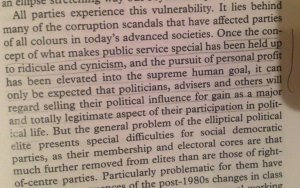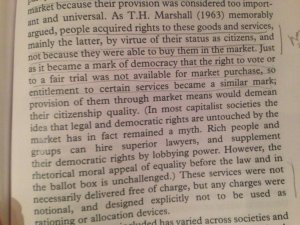Four years ago, on a daylong hike with friends north of San Francisco, Altman relinquished the notion that human beings are singular. As the group discussed advances in artificial intelligence, Altman recognized, he told me, that “there’s absolutely no reason to believe that in about thirteen years we won’t have hardware capable of replicating my brain. Yes, certain things still feel particularly human—creativity, flashes of inspiration from nowhere, the ability to feel happy and sad at the same time—but computers will have their own desires and goal systems. When I realized that intelligence can be simulated, I let the idea of our uniqueness go, and it wasn’t as traumatic as I thought.” He stared off. “There are certain advantages to being a machine. We humans are limited by our input-output rate—we learn only two bits a second, so a ton is lost. To a machine, we must seem like slowed-down whale songs.”
...
On a trip to New York, Altman dropped by my apartment one Saturday to discuss how tech was transforming our view of who we are. Curled up on the sofa, knees to his chin, he said, “I remember thinking, when Deep Blue beat Garry Kasparov, in 1997, Why does anyone care about chess anymore? And now I’m very sad about us losing to DeepMind’s AlphaGo,” which recently beat a world-champion Go player. “I’m on Team Human. I don’t have a good logical reason why I’m sad, except that the class of things that humans are better at continues to narrow.” After a moment, he added, “ ‘Melancholy’ is a better word than ‘sad.’ ”
http://www.newyorker.com/magazine/2016/10/10/sam-altmans-manifest-destiny







